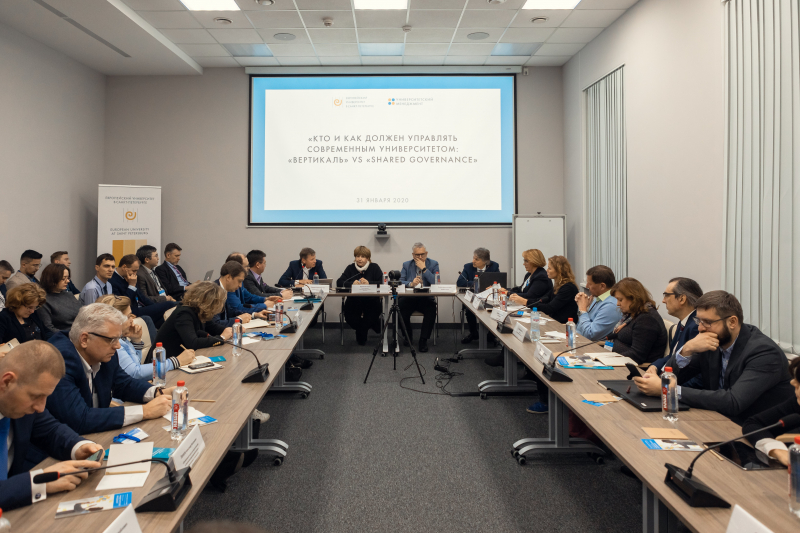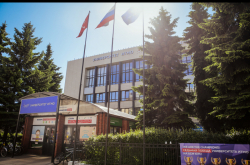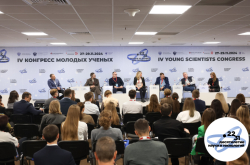Sharing their views on the topic were Vladimir Vasilyev, Rector of ITMO University; Vadim Volkov, Rector of the European University at St. Petersburg; Marina Borovskaya, Deputy Minister of Science and Higher Education; Daria Kozlova, First Vice Rector of ITMO University; Vladimir Knyaginin, Vice Governor of St. Petersburg; Andrei Volkov, Academic Policy Advisor at the SKOLKOVO Moscow School of Management; and Elena Chernyshkova, Director of the Center for Philanthropy Studies and Social Business Programs of Ural Federal University’s Graduate School of Economics and Management.
Starting the discussion, Vadim Volkov identified key problems of university management. Firstly, how to evaluate whether a university and the way it’s managed are successful or unsuccessful? After all, being not a commercial or bureaucratic institution but an organization with a noble mission, universities cannot be appraised from a standard managerial point of view based on performance figures or the amount of money made.
Secondly, the crux of a university is formed by professors – the people who possess an independent source of authority, and if famous and successful, can enjoy practically the same clout as Hollywood stars. Setting such colleagues tasks can be problematic, as they themselves have a strong negotiation position. And the better a university is, the more star-studded is its faculty, and, consequently, the more difficult it is to manage.
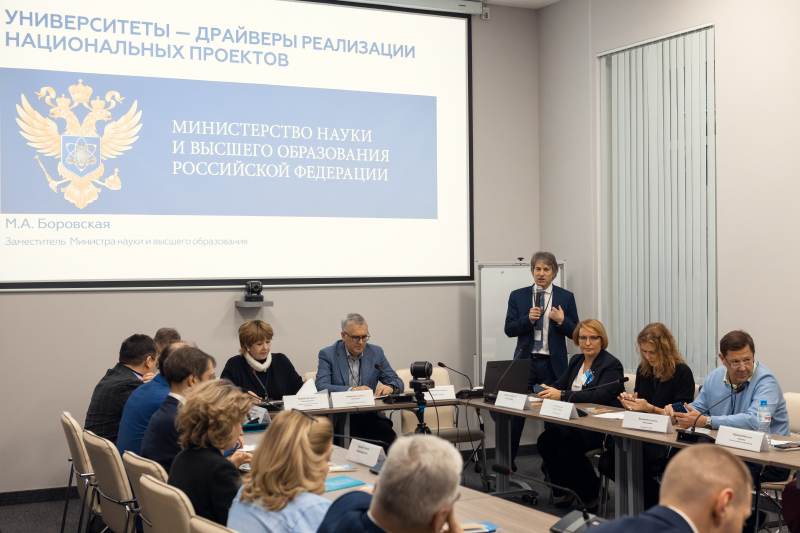
Thirdly, universities are quite conservative structures, with every detail discussed a dozen times before being given the green light and changes happen slowly, much slower than the managerial team would want them to happen, which often leads to conflicts.
A centralized model of governance, where decision-making ultimately comes down to the rector, doesn’t work that well anymore. According to experts, American universities’ success in international rankings can be explained exactly by their governance policy – the so-called shared, or collegiate, governance. But would this model work in the realities of modern Russian universities?
In the opinion of Daria Kozlova, ITMO University’s First Vice Rector, neither the former nor the latter model works in their purest forms. ITMO University’s leadership and governance models are underpinned by four key factors: the external expert assessment of the International and Supervisory Councils, which define the direction of the university’s strategic development; the decisions of the Academic Council, 25% of which are composed of students and which provides a platform for active discussions and brainstorming; the work of the deans, directors of schools, and heads of departments; and the work of project groups formed on an ad hoc basis to solve specific tasks.
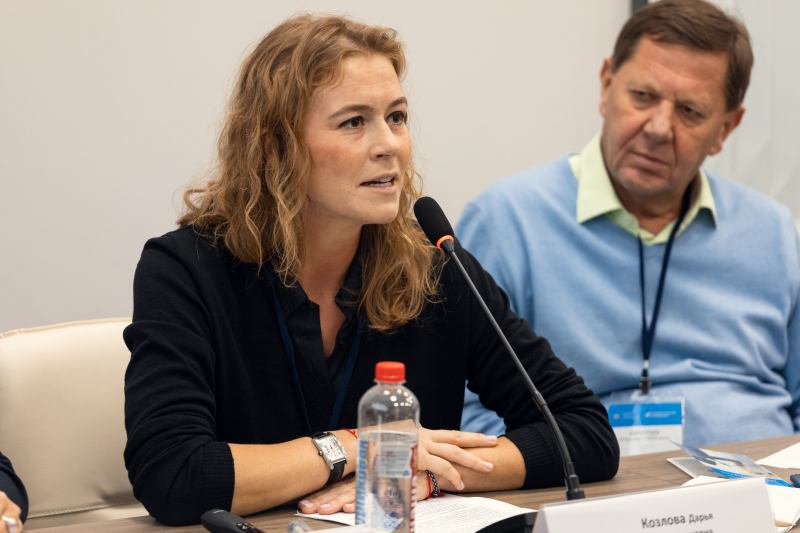
The project groups, it has to be noted, aren’t always overseen by the rector, vice rectors or deans. The leadership’s role here is only to correctly assemble these groups – the actual governance is carried out by the members themselves. The rectorate never intervenes in their activities until they feel ready to come in and report on the results.
“Preparing for my presentation, I was thinking about what makes ITMO University different, what’s important for me personally. Undoubtedly, this is freedom: freedom of development, implementation, choice of direction, collaboration. And I think that it is freedom that attracts specialists to our university,” highlighted Daria Kozlova during the discussion.
ITMO’s First Vice Rector added that another of the university’s superpowers is the rate with which changes are made and ideas are implemented. Indeed, if a year passes between the formulation of an idea and its implementation, this idea might not be interesting anymore.
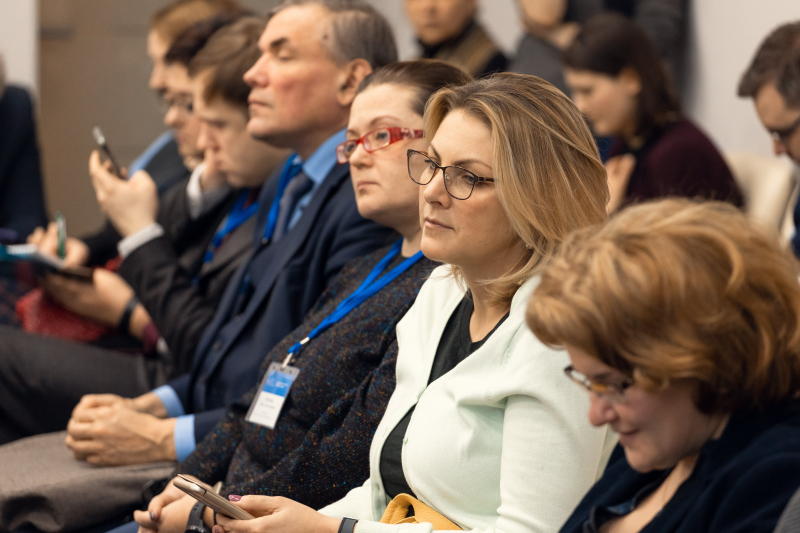
In the nearest future, the entire structure of the university and its governance will undergo major changes. Digitalization, which inevitably will become more and more widespread in the sphere of education, will lead to a root-and-branch transformation: the disappearance of some work positions, the appearance of new ones, a thorough review of the roles of all participants of the process. Today, new roles are already being created at the university such as science communicators, artists who introduce interdisciplinarity and motivate scientists with their unconventional suggestions and approaches.
“We understand, internally, that ITMO University is not a set of departments but a set of platform solutions. We understand that data is changing us at crazy speeds, that soon we will be able to relieve the heads of routine tasks so that they have more time to create,” underlined Daria Kozlova.
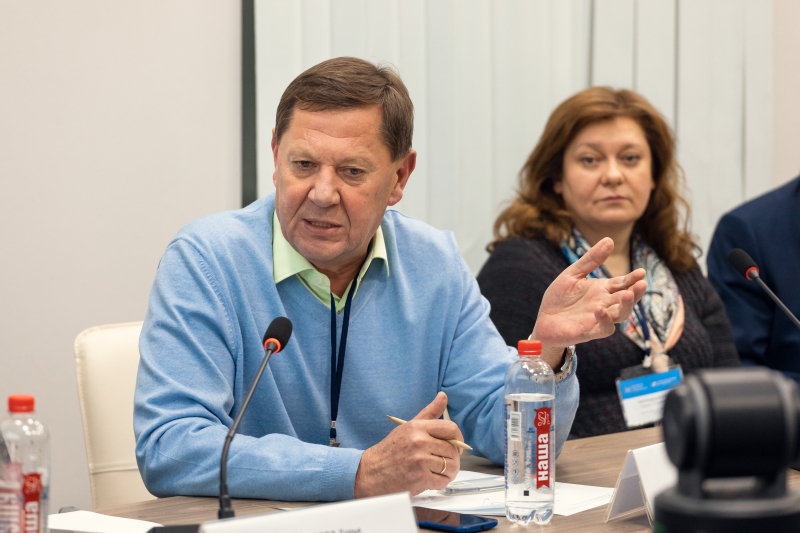
ITMO University Rector Vladimir Vasilyev added that the very boundaries between educators and students will gradually efface, and a university’s openness as a platform for interaction between science, education and society will only increase.
“Some of the most progressive universities have already switched to an interdisciplinarity model. Some are on their way. But I would like to note that in any case, this is a shift towards absolute platform openness. And we plan to achieve this in the future. But when we’re moving to these forms, it becomes impossible to maintain the existing regulatory arrangements. Abiding by the state standards will become extremely difficult – they will become obsolete faster than new ones will be appearing.”
